Below are the winners of the 1989Pulitzer Prize by category.
The Pulitzer Prizes for 1975, the 59th annual prizes, were ratified by the Pulitzer Prize advisory board on April 11, 1975, and by the trustees of Columbia University on May 5. For the first time, the role of accepting or rejecting recommendations of the advisory board was delegated by the trustees to the university's president, William J. McGill; the change was prompted by the desire of the trustees to distance themselves from the appearance of approval of controversial awards based on work involving what some considered to be illegal leaks, such as the 1972 Pulitzer Prize awarded for the publication of the Pentagon Papers.
James B. Steele is an American investigative journalist and author. With longtime collaborator Donald L. Barlett he has won two Pulitzer Prizes, two National Magazine Awards, six George Polk Awards and many other national awards during the 40 years they worked together at The Philadelphia Inquirer, Time, and Vanity Fair.
Walt Bogdanich is an American investigative journalist and three-time recipient of the Pulitzer Prize.
Daniel Hertzberg is a former American journalist. Hertzberg is a 1968 graduate of the University of Chicago. He married Barbara Kantrowitz, on August 29, 1976. He was the former senior deputy managing editor and later deputy managing editor for international news at The Wall Street Journal. Starting in July 2009, Hertzberg served as senior editor-at-large and then as executive editor for finance at Bloomberg News in New York City before retiring in February 2014.
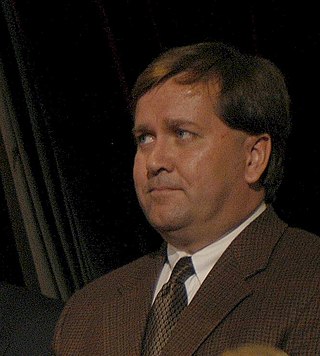
David Barstow is an American journalist and professor. While a reporter at The New York Times from 1999 to 2019, Barstow was awarded, individually or jointly, four Pulitzer Prizes, becoming the first reporter in the history of the Pulitzers to be awarded this many. In 2019, Barstow joined the faculty of the UC Berkeley Graduate School of Journalism as a professor of investigative journalism.

Scott Higham is an American investigative journalist and author who documented the corporate and political forces that fueled the opioid epidemic, in addition to conducting other major investigations. He is a five-time Pulitzer Prize finalist and won the Pulitzer twice with his colleagues at The Washington Post. He is a member of The Post’s investigative unit and the co-author of two books.
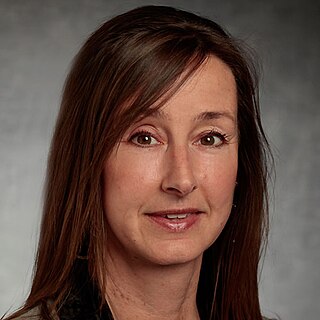
Raquel Rutledge is an Pulitzer Prize-winning American investigative reporter working at the Milwaukee Journal Sentinel. Her investigations have uncovered government benefits fraud, public health, workplace safety issues, tax oversight failures, malfeasance in undercover federal law enforcement stings, life-threatening dangers of alcohol poisoning at resorts in Mexico, and a disproportionate fire risk faced by renters living in Milwaukee's most distressed neighborhoods.
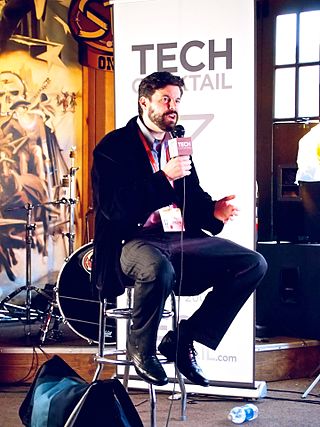
Charles Duhigg is an American journalist and non-fiction author. He was a reporter for The New York Times, currently writes for The New Yorker Magazine and is the author of two books on habits and productivity, titled The Power of Habit: Why We Do What We Do in Life and Business and Smarter Faster Better. In 2013, Duhigg was the recipient of the Pulitzer Prize for Explanatory Reporting for a series of 10 articles on the business practices of Apple and other technology companies.
Duff Wilson is an American investigative reporter, formerly with The New York Times, later with Reuters. He is the first two-time winner of the Harvard University Goldsmith Prize for Investigative Reporting, a two-time winner of the George Polk Award, and a three-time finalist for the Pulitzer Prize.
Alix Marian Freedman is an American journalist, and ethics editor at Thomson Reuters.
Gary Cohn is an American Pulitzer Prize-winning investigative reporter and adjunct professor at the University of Southern California Annenberg School for Communication and Journalism.
Mark Maremont is an American business journalist with the Wall Street Journal. Maremont has worked on reports for the Journal for which the paper received two Pulitzer Prizes.
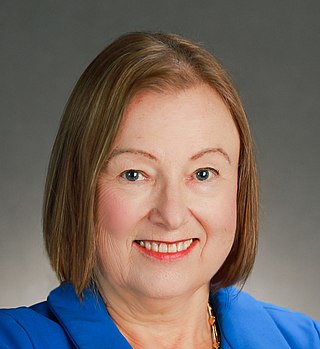
Amanda Bennett is an American journalist and author. She was the director of Voice of America from 2016 to 2020, and the current CEO of U.S. Agency for Global Media. She formerly edited The Philadelphia Inquirer and the Lexington Herald-Leader. Bennett is also the author of six nonfiction books.
James Ray Polk was an American journalist, known for his investigative reporting and coverage of American political corruption and fraud. Over the course of his career, he covered the Raymond Donovan investigations, the Bert Lance controversy, the Abscam scandal, and the financial dealings of John Zaccaro, husband of 1984 Democratic vice presidential nominee Geraldine Ferraro.
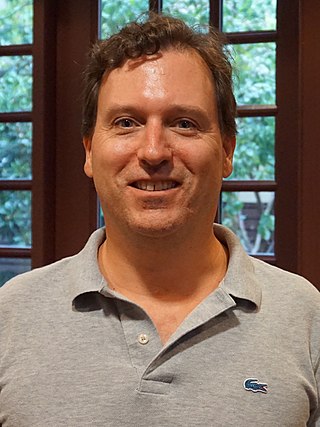
John Carreyrou is a French-American investigative reporter at The New York Times. Carreyrou worked for The Wall Street Journal for 20 years between 1999 and 2019 and has been based in Brussels, Paris, and New York City. He won the Pulitzer Prize twice and is well known for having exposed the fraudulent practices of the multibillion-dollar blood-testing company Theranos in a series of articles published in The Wall Street Journal.
Susanne Craig is a Canadian investigative journalist who works at The New York Times. She was the reporter to whom Donald Trump's 1995 tax returns were anonymously mailed during the 2016 presidential election. In 2018, she was an author of The New York Times investigation into Donald Trump's wealth that found the president inherited hundreds of millions of dollars from his father, some through fraudulent tax schemes. She won the Pulitzer Prize for Explanatory Reporting in 2019 for this coverage. In 2020, she further reported on Donald Trump's tax record which disclosed that he paid $750 in federal income tax during 2016 and nothing at all in 10 of the previous 15 years. Craig is also known for her coverage of the financial crisis of 2007–2008 and of New York State and New York City government and politics.
The Gerald Loeb Award is given annually for multiple categories of business reporting. Special awards were occasionally given for distinguished business journalism that doesn't necessarily fit into other categories.

Jonathan Kaufman is a Pulitzer Prize winning reporter, author, editor, Director of the Northeastern University School of Journalism, and professor of journalism.
Margie Mason is an American, Pulitzer-winning journalist. She's a native of Daybrook, West Virginia and one of a handful of journalists who have been allowed to report from inside North Korea. Mason has traveled, as a reporter, to more than 20 countries on four continents. She has worked for the Associated Press for more than a decade, and is the Indonesian Bureau chief and Asian medical and human-rights writer in Jakarta, Indonesia. She was one of four journalists from the Associated Press who won the 2016 Pulitzer Prize for Public Service, the 2015 George Polk Award for Foreign Reporting, and the 2016 Goldsmith Prize for Investigative Reporting.






